Easter Bush scientists share AgriFood Transformations for Africa
Campus-wide research dialogue spurs ideas for collective action at Africa Week 2019
The agriculture and livestock sectors play a central role in the lives of people across Africa. And science plays an important role in sustainably developing this sector as a pathway to ending poverty, inequality, hunger and malnutrition. Researchers across the University of Edinburgh’s Easter Bush Campus have long worked in Africa with local partners to develop and test innovations that will sustainably improve productivity in the agrifood sector, and increase incomes and opportunities for smallholder communities.
At a recent research dialogue, “AgriFood Transformations for Africa: working together for impact” Easter Bush scientists had the opportunity to share innovations and discuss pathways for progress. This was the second year researchers got together for Africa Week, which celebrates the University's links across Africa.
More than 50 researchers participated, representing key groups at Easter Bush Campus: The Roslin Institute, Supporting Evidence-Based Interventions (SEBI), the Centre for Tropical Livestock Genetics and Health (CTLGH), the Global Academy of Agriculture and Food Security, Scotland’s Rural College (SRUC) and the International Veterinary Vaccinology Network (IVVN).
I am delighted with the number of attendees at today’s event. I think it reflects the large and increasing volume of activity and research that we are undertaking on this campus to improve food security in Africa.
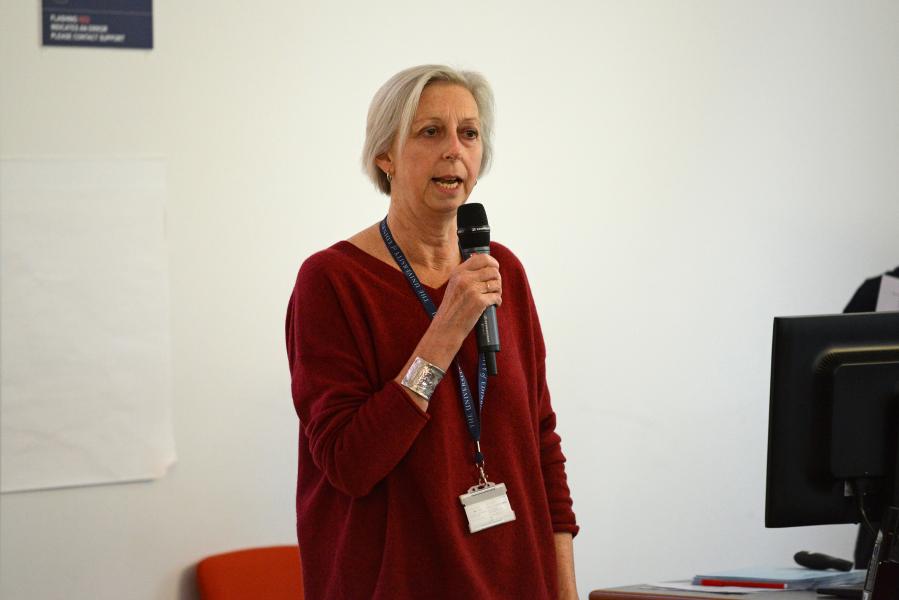
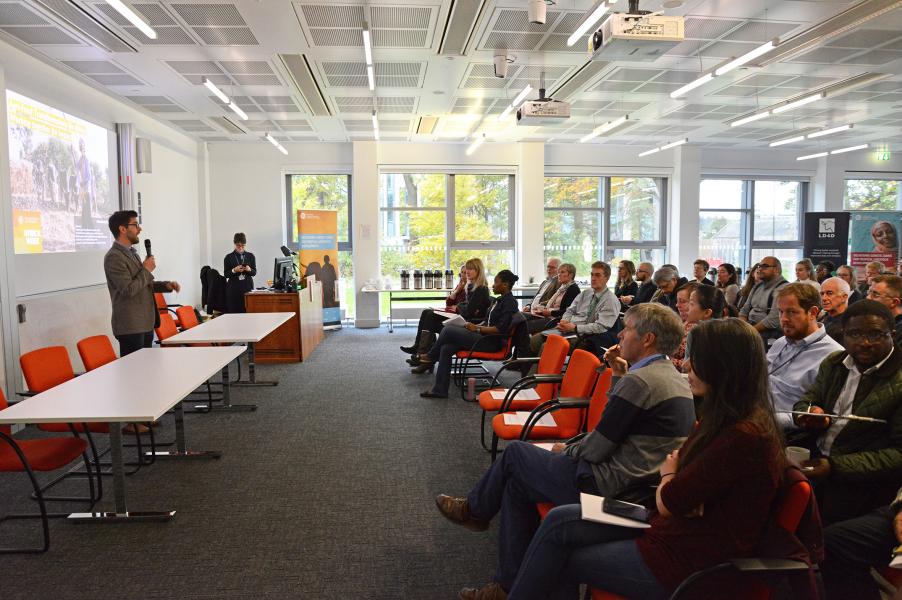
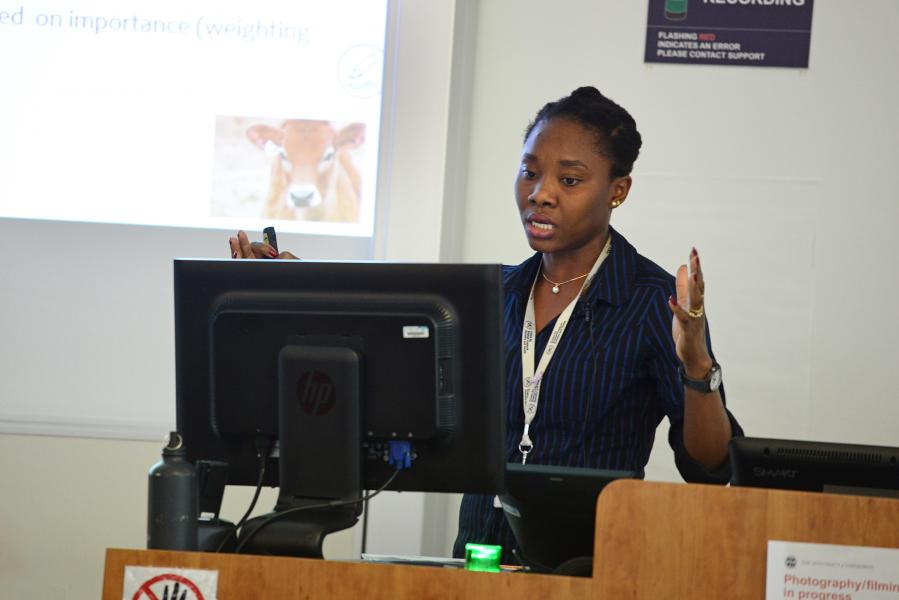
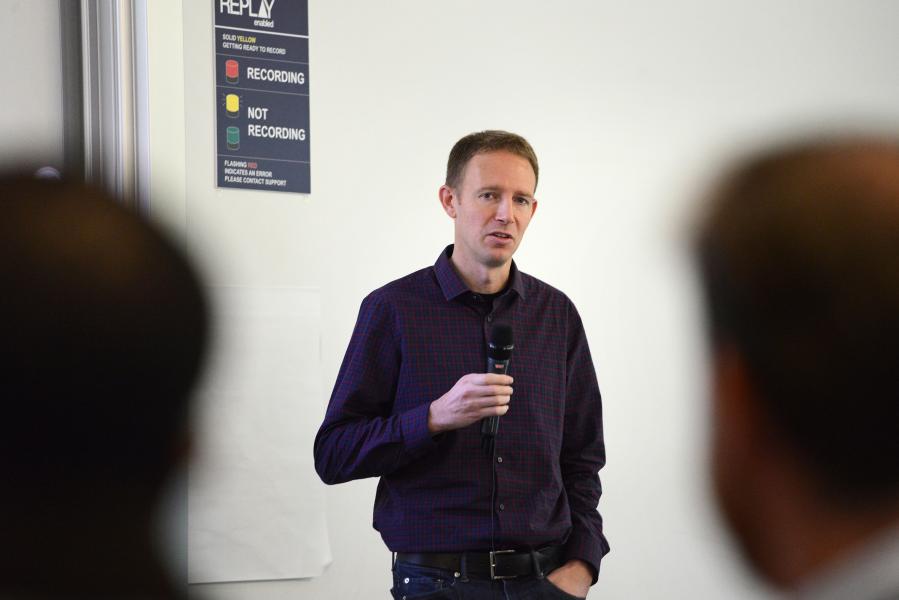
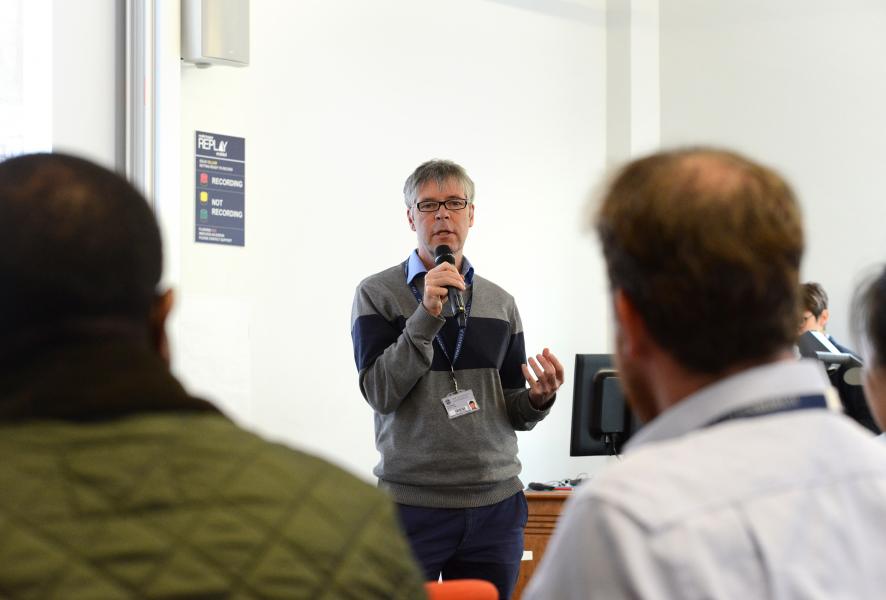
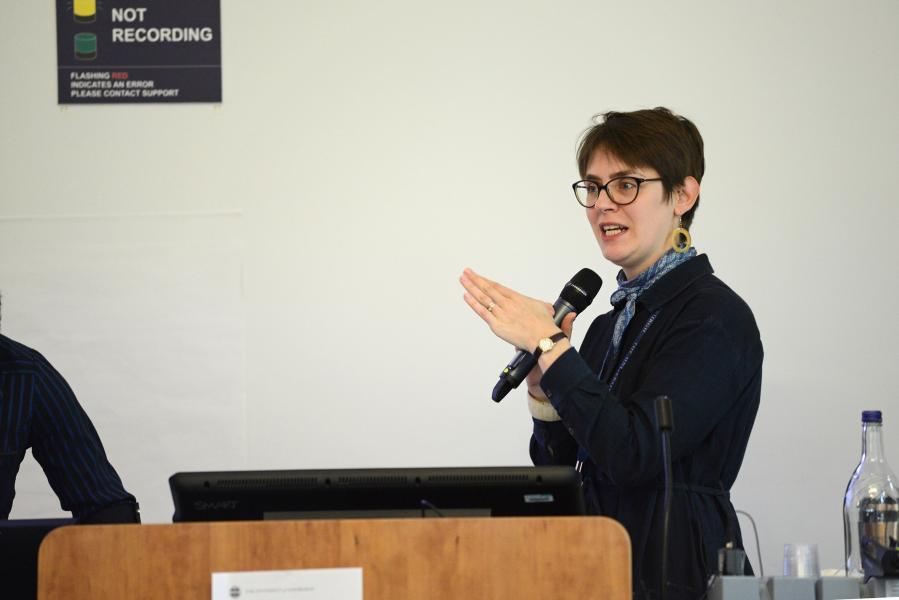
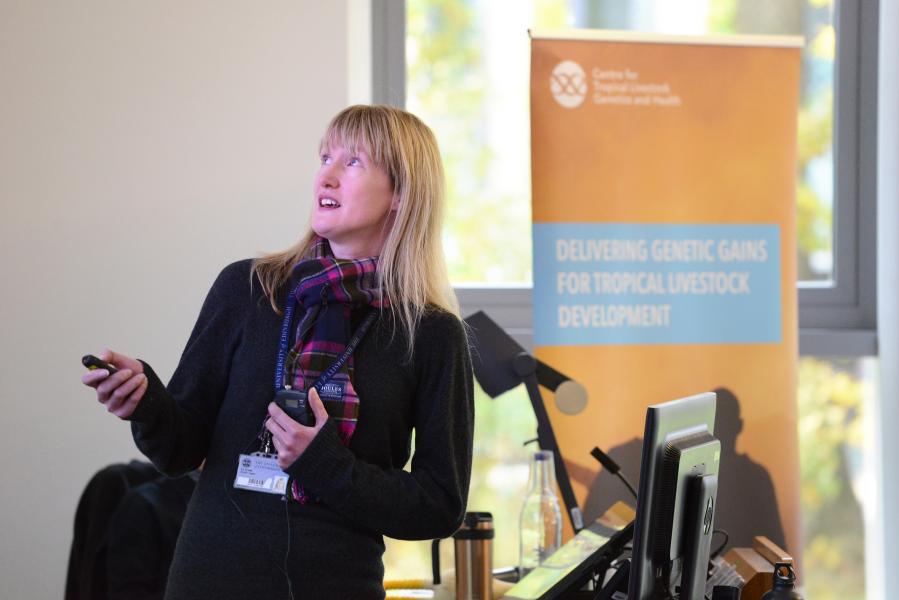
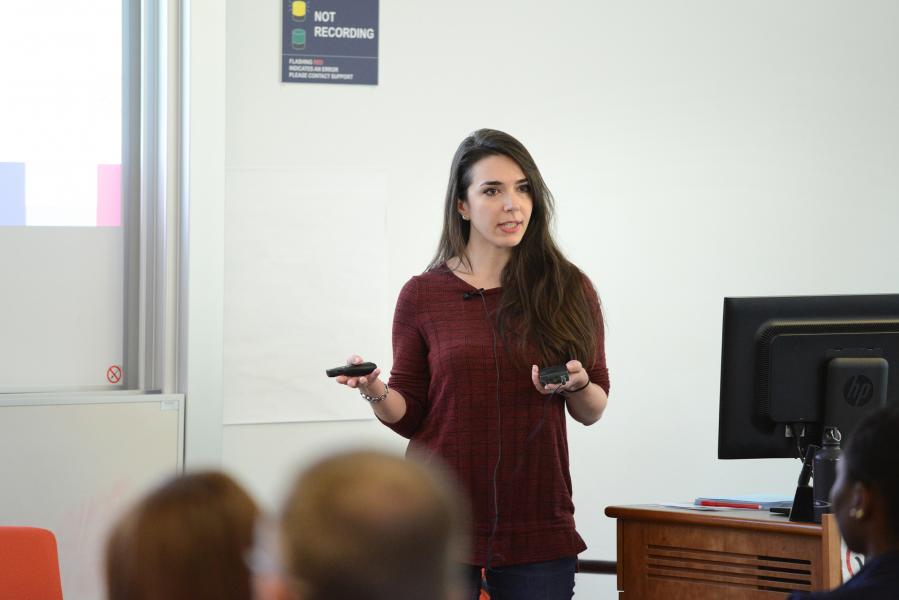
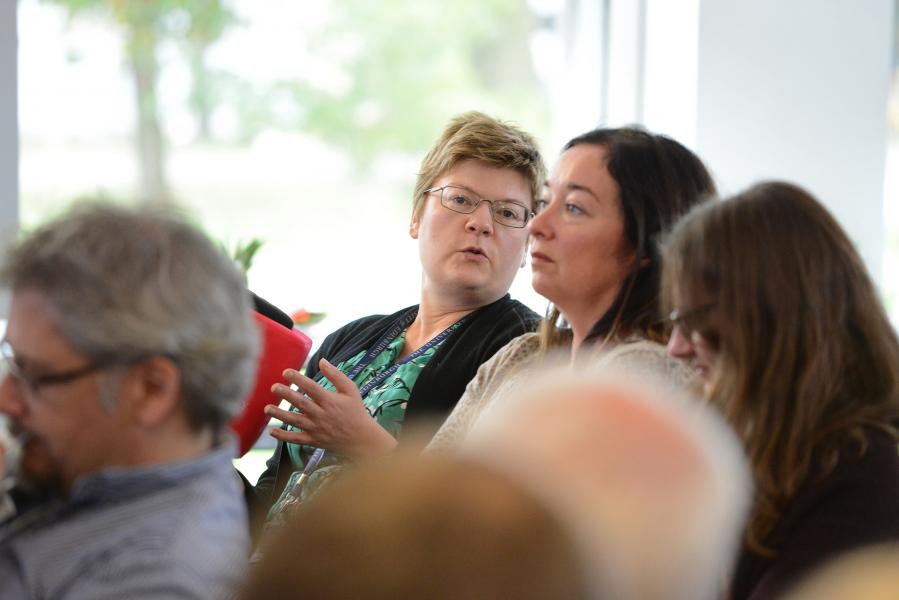
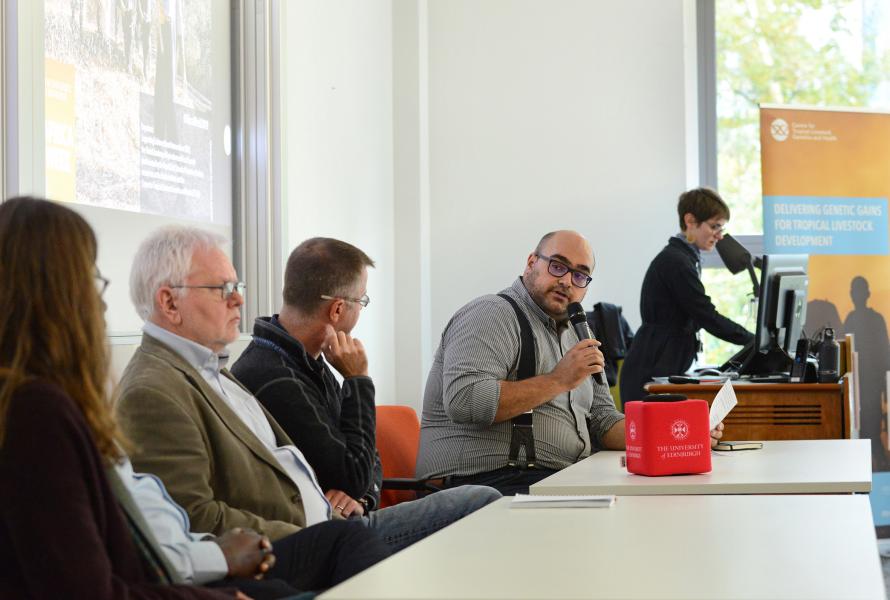
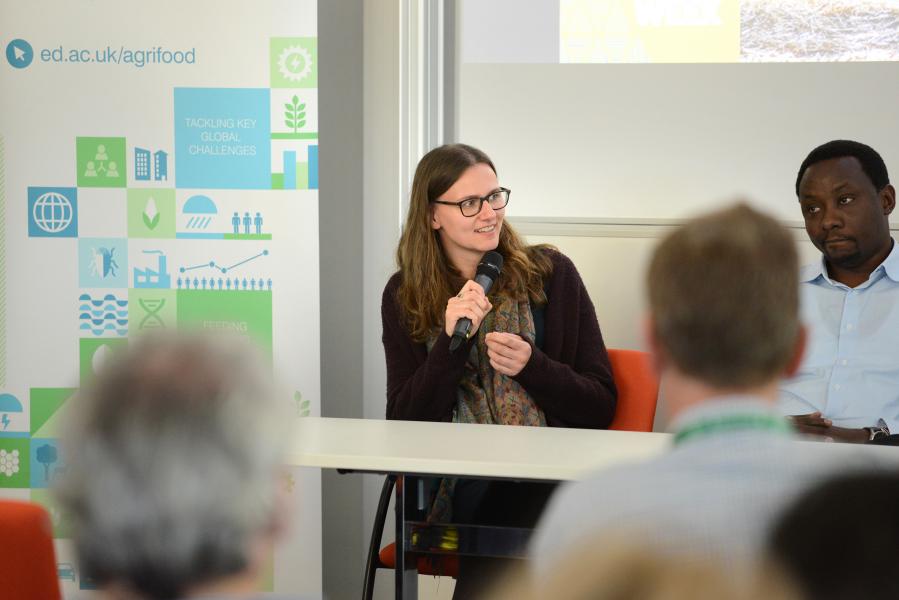
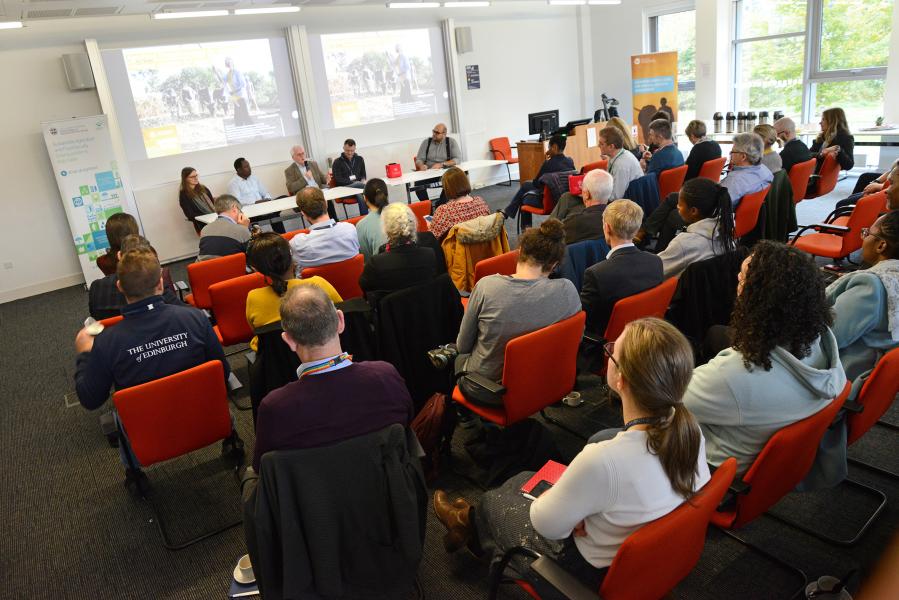

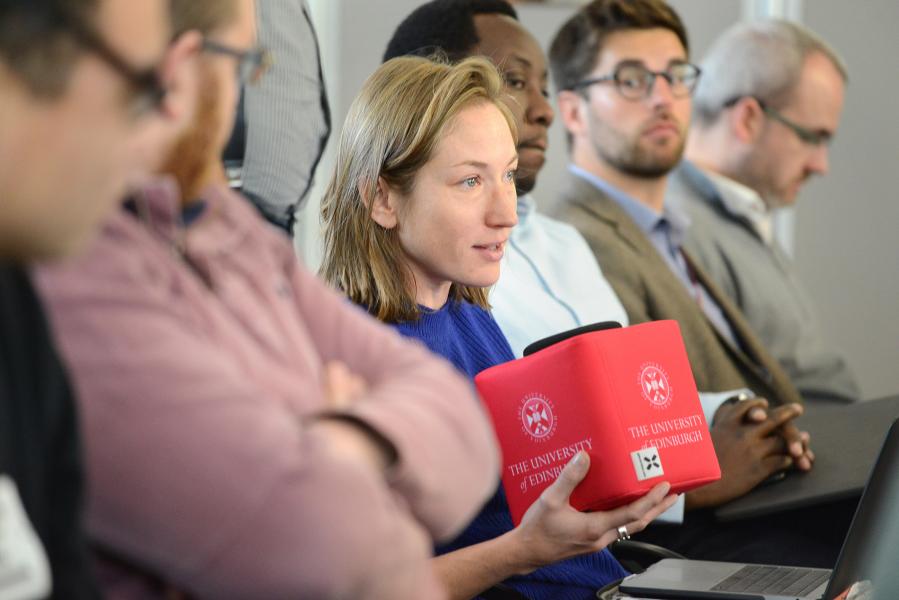
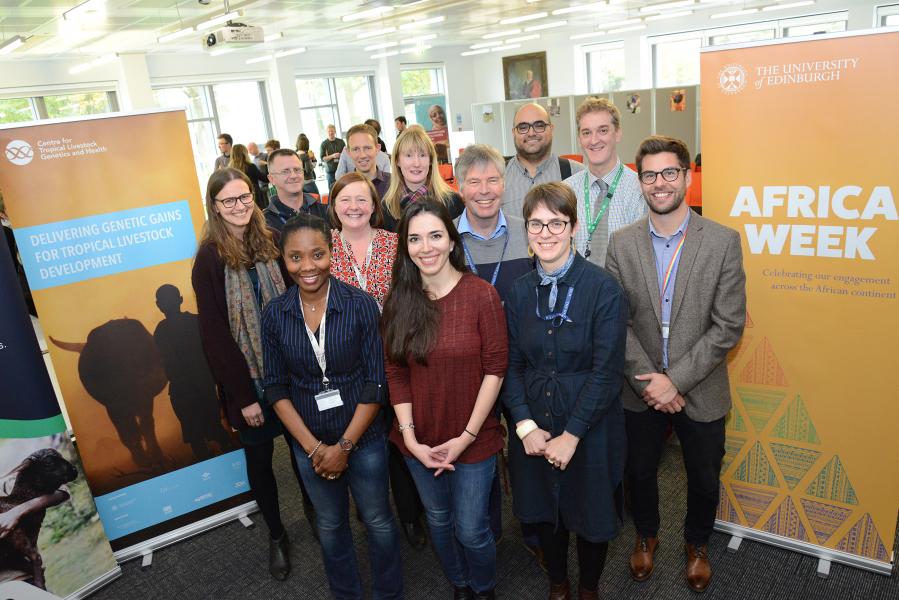















Flash Talks highlight innovative research
A series of flash talks allowed participants to learn about a wide range of innovations addressing different areas of the food system.
Oluyinka Opoola (CTLGH/Roslin) spoke about her project to develop a dairy profit index help maximise dairy outputs and income for dairy farmers in Rwanda. “Rwandan dairy farmers prefer a small hardy cow that produces a calf, has high milk yields and is cheap to feed,” she explained. Rwanda has selected the Jersey as its preferred breed to support the development of the country’s dairy industry due to its suitability to low-input farming systems. The project, undertaken in collaboration with Rwanda’s Agriculture and Animal Resources Development Board and funded by Jersey Overseas Aid, aims to develop a dairy profit index tailored for Rwanda, tailored for the Jersey breed, which will support the future profit led management decisions by Rwandan smallholder dairy farmers.
Ross Houston (Roslin) highlighted the use of genomic tools for improving Nile Tilapia, one of the world’s most important food fish, in African aquaculture. The research, undertaken with a range of partners including the WorldFish Centre, investigates how selective breeding can improve production of Nile tilapia. One of their activities is to investigate the genetic basis of disease resistance, and use these insights to test and optimise genomic selection for Egyptian and Malaysian breeding programs.
While there are many options for feed livestock, it’s not always clear which ones are locally appropriate or feasible. Alan Duncan (Global Academy/International Livestock Research Institute (ILRI)) showcased work on mapping feasibility of livestock feed options in Africa, to better match technical feed options with the local context. The work, which is a collaboration with the International Centre for Tropical Agriculture (CIAT) and ILRI, aims to stimulate the adoption of better feed options at scale in order to transform livestock productivity and hence livelihoods and human nutrition outcomes.
Emily Clark (CTLGH/Roslin) presented the “Million bucks” strategy for delivering transformative goat breeding technologies. Together with Mike Coffey (SRUC), this work aims to overcome traditional barriers to distributing ‘elite’ genetics in small ruminants. By using a combination of modern reproductive technologies, e.g. artificial insemination, embryo transfer or semen sexing, and a ‘surrogate sire’ system this initiative distributes thousands of donor ‘elite’ bucks directly into the existing infrastructure. This approach ‘leapfrogs’ the need to establish costly new breeding infrastructure, and directly disseminates ‘elite’ genetics without social disruption.
Theodora Tsouloufi (SEBI) shared her work on innovative evidence maps on livestock disease and mortality in Ethiopia. She explained how systematic evidence maps can digest hundreds of existing studies to generate new insights and intelligence on livestock disease in Ethiopia. These will be presented via interactive visualisations and dashboards to allow funders, decision makers and other researchers to easily assess and grasp the available body of evidence. Dora’s team will be working with informatics experts at the University of Edinburgh’s Bayes Centre to accelerate the research and synthesis process using text mining and automation technologies.
Increasing knowledge exchange and collaboration
A lively panel discussion followed, chaired by Mazdak Salavati (CTLGH/Roslin). Panellists Rebecca Callaby (CTLGH/Roslin), Andy Peters (SEBI), Liam Morrison (CTLGH/Roslin), and Thumbi Mwangi (Washington State University College of Veterinary Medicine) reflected on the innovations presented and discussed possible ways forward with the audience.
The panel agreed that although great progress had been made, there was still a lot of work to be done in terms of advancing livestock innovations in the African context. Oswald Matika (CTLGH/Roslin) pointed out that advanced crop research has made a big impact in Africa but livestock innovations have not yet reached their potential. Liam Morrison (CTLGH/Roslin) noted that improved tools and technologies for understanding Trypanosomiasis are a source of optimism for improving livestock health in Africa.
Engaging with national-level partners is crucial for achieving any impact at scale. Prof Andy Peters, director of SEBI, highlighted the importance of listening to potential users of data such as national governments. “Often they have their own priorities in terms of what animal diseases they want to tackle,” he said. Private sector engagement is another critical building block, said Carolyn Schumacher, CEO of GALVmed: “including the broad spectrum of private sector is necessary to create a bottom-up movement that can mobilise multi-nationals in animal health in Africa,” she explained.
The researchers who attended to event were keen to develop connections and improve integration among scientists at Easter Bush, to enable sharing, collaboration and collective impact. They agreed that this research dialogue event was a good step towards facilitating knowledge exchange and collaboration among researchers working on similar topics. “There are real opportunities at Easter Bush campus to do things at scale,” said Liam Morrison. “We must seize the opportunity we have to work together on system change for improved food security in Africa,” said Prof Geoff Simm, director of the Global Academy.
Are you interested in advancing the conversation about agri-food innovations for Africa, and working together for impact?
This event was jointly organised by Supporting Evidence Based Interventions (SEBI), the Global Academy of Agriculture and Food Security (both hosted by the Royal (Dick) School of Veterinary Studies), the Roslin Institute and the Centre for Tropical Livestock Genetics and Health (CTLGH).
View presentations
More information

